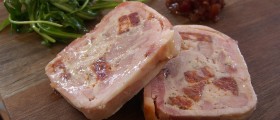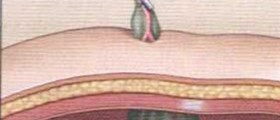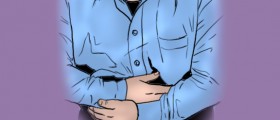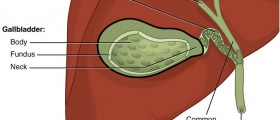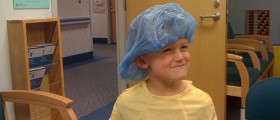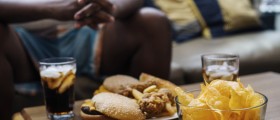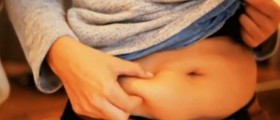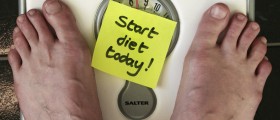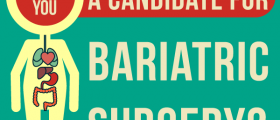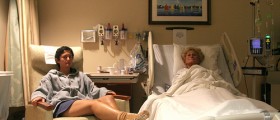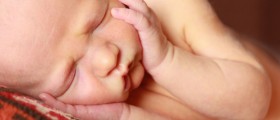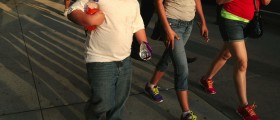How do I lose weight? Is there only some foods I can eat? Please help
Loading...
Loading...
"After research, my husband has a theory on what may be happening:
it makes since that physicians would think that weight loss should occur. There is less bile, which means less fat asorbtion, which means the fat comes out in your stool, which means the fat is not ushered into fat cells via the bile. Viola! Weight loss.
This is not true. There is a mechanism at work here that is not fully understood or researched. The reason it's not fully researched is because there is no money in it. It would be hell to convince a drug company and the FDA to approve a food supplement or a precription med that helped with post cholecystectomy patients. A huge meal ticket for general surgeons are cholecystectomies. 600,000 are performed each year.
This is our theory on why weight is packed on instead of lost: Bile is needed to help absorb the fat and break it down into vital fat soluable vitamins. A, D, E, and K. When the predictable amounts of bile is lost, the liver must work overtime to compensate by "guessing" at how much bile is going to be needed to digest your meal. Sometimes it overshoots, and diarrhea happens. Sometimes it doesn't secrete enough, and constipation happens. Hardly anything nutritious is absorbed. Therefore, your body shoves the fat somewhere else for later: in your fat tissue. Our bodies have been thrown into a fuctional "mal absorbtion syndrome". Our body thinks we aren't getting nutrients we need, so it holds on to everything, packing it where ever it can, for possible energy stores later. Fatigue results from this.
It would make sense to replace in our body what we lost from the function of the GB. The GB is NOT useless, it is VITAL in helping us metabolize and break down fats properly.
We are going to try the "weight loss kit" that this woman sells, for people after having their GB out. It is basically bile salts, PLUS a BHB fat metabolizer, Mega Acid A, etc. It would seem reasonable that since our built in metabolizer was removed, that we must manually put in digestive aids to metabolize the fat we take in.
I'll keep my results posted. And to the VERY FEW lucky ones proclaiming they lost weight or maintained their weights after having their gallbladder out: congratualtions, and consider yourself abnormal. This is not the norm. We are happy for you, but do not need your weight loss thrown in our face and your self proclaiming medical advice of "it must just be what we are eating." Does it make you feel better to bring people to tears that are struggling with their weight for no known reason? Since your body has adjusted so well after having your GB removed, that may suggest your liver is already working too hard to compensate. Be prepared for colitis, ulcers, and bile stones in your liver later on in life.
For all of us in THIS boat, don't be too hard on yourself. There IS a reason for all this. Just because it's not fully understood, doesn't mean it's not there."
It seems to explain all the weight gain you get post surgery, which I found helpful though I live in the UK and I'm not suggesting you try anything which she tried but the infomation sems very good.
I still have yet to find out why one of my wound sites is not healing.
Hope this helps :D
Loading...
With bile trickling into your digestive system constantly after gallbladder removal surgery, there may not be enough or it could be too diluted to perform well. Everyone says your digestive system is still fully functional after gallbladder removal surgery, but the fact is that it will change. A lot. Weight gain is quite common. It can happen even if you do your best to follow a healthy gallbladder removal diet devoid of processed foods and too much fat and sugar. Inflammation also plays a role in weight gain.
However, eating plenty of fruits and veggies, lean meats, fish, and smaller portions, will help you lose weight. It won't be easy but a healthy lifestyle is still the best remedy. Now more than ever, do not resort to crash diets!
Loading...
By: Dr. Loretta Lanphier, ND, CN, HHP
Roughly 20 million Americans suffer from gallstones, and 750,000 of them have their gallbladders removed each year. There are 800,000 hospitalizations $2 billion spend annually on gallbladder disease.
For most people the pain of a malfunctioning gallbladder eventually becomes unbearable. After one or two trips to the emergency room the suggestion of surgery is met with certain approval. Unfortunately this may or may not end the pain and discomfort. The probable after-effects of gallbladder surgery are never discussed with the patient which leaves the patient with the impression that all will be well after surgery. But it doesn't take long to realize that all is "not well" and the patient soon begins to feel very betrayed by their surgeon and doctor who did not prepare them for "life without a gallbladder."
Contrary to medical opinion the gallbladder is of use to the body. The gallbladder is a small sac underneath your liver that stores and secretes bile, a digestive fluid that breaks down fats. Gallstones form when the chemical compounds in bile become unbalanced -- no one's sure exactly why this happens, but a diet high in fat often makes the problem worse. Since bile is actually produced by the liver, it's possible to survive without a gallbladder, but often not without unpleasant digestive tract complications.The gallbladder is like a pump. Without it, the liver can't secrete enough bile to properly digest a full meal. Many people experience symptoms such as diarrhea, gas, abdominal pain, bloating, indigestion, constipation, increased allergies, liver congestion, itchy skin and autoimmune diseases. Some patients suffer from dumping syndrome, in which food is "dumped" too quickly into the intestines from the stomach.
Suggestions for living without a gallbladder:
Diet is extremely important. Eat low-fat, high fiber, organic and healthy. Eliminate refined carbohydrates and hydrogenated oils.
Liver Flush - Every four months. People without gallbladders may develop stones in the liver which will lead to a sluggish liver.
Parasite Cleanse - Two times a year. I recommend a six-week course of Para-Buster then maintenance for 3 weeks.
Digestive Enzymes - Take 3-5 capsules at least 15 minutes before each meal. You will need to take enzymes for the rest of your life in order to digest the good fats (Omega 3) which are essential for good health.
Reduce chemical overload on the liver (pre-packaged food, personal care products, lawn products, perfumes, cosmetics, etc.)
Drink only filtered water - Try to drink 1/2 your body weight in ounces of water every day.
Use a Probiotic - I recommend Latero-Flora or Primal Defense.
Reduce animal intake (meat and dairy) - When consuming animal products make sure they are free-range, organic and hormone-free.
Eliminate white sugar and white flour.
Consume a green drink or pills equal to one-two tablespoons daily. Quantum Greens is a good choice.
Activated Charcoal - Some people have found that this helps with symptoms as it helps to sequester bile acid.
Chinese Bitters (Chinese Gentian with Bupleurum) in the morning and Coptis with Bupleurum at night to stimulate bile flow.
Exercise daily for 30 minutes. Walking is highly suggested.
Following the above suggestions will ensure that your digestive system operates to its fullest and will help to alleviate many of the side-effects from gallbladder removal.
So your gallbladder is gone...that's the past. It's time to move on and educate yourself in getting healthy and feeling better. Following the above suggestions will ensure that your digestive system operates to its fullest and will help to alleviate many of the side-effect from gallbladder removal. You can feel good again after gallbladder surgery, but for most it will mean committing to a total lifestyle change that will be beneficial in more ways than just one.
As with most disease, prevention is the best solution, but when disease strikes remember that there are always solutions and always hope.
If you have any doubts about the self-healing power of your body,
consult your naturopath or health practitioner for advise!
Loading...
Thank you,
Eva
Loading...
Now that I've found the information here, I know what to expect since having my gallbladder out. I understand how the gallbladder, liver and intestines all work together. They don't tell you any of this prior to surgery or afterwards either. This information is vital and from here I'm going to keep researching and I'm going to switch over to B12 too and see if this helps as well.
Has anyone felt a strange feeling under the right breast, almost like a grabbing or squeezing, even sort of a numbing sensation since having their gallbladder removed?
Loading...
Loading...
Loading...
By the way ..due to my other medical issues, I can not do rigorous exercises and am starting a daily yoga routine along with this doctors suggestions.
Good luck to all of you ! Please post results and suggestions for all of us fellow sufferers! :-D
Loading...
Loading...
I also notice that the weight gain after my surgery is extensively cellulite ridden; my thighs and even upper arms contain hail damage... :'(
Loading...
Loading...
I had my GB removed about a year ago. I have been struggling with weight loss for many years but find it even harder now that I have had my GB removed. I didn't know about the consequences of removing my GB and since I have had it removed I have been doing more research. I am so saddened because I did gain weight and I have tried to lose weight. I tried the Vegan and Vegetarian diet, because I was so desperate to figure my digestive system out. One year later, I am still so confused. Everything I eat seems to do me no good, I am so frustrated. I am also desperately trying to lose some weight, and hope to adjust my diet even more. I read the doctors notes above and think that was a great explanation and should help me a bit more. Just so frustrating to have to deal with this everyday. :'( :'(
Loading...
***edited by moderator*** web addresses not allowed
Loading...



